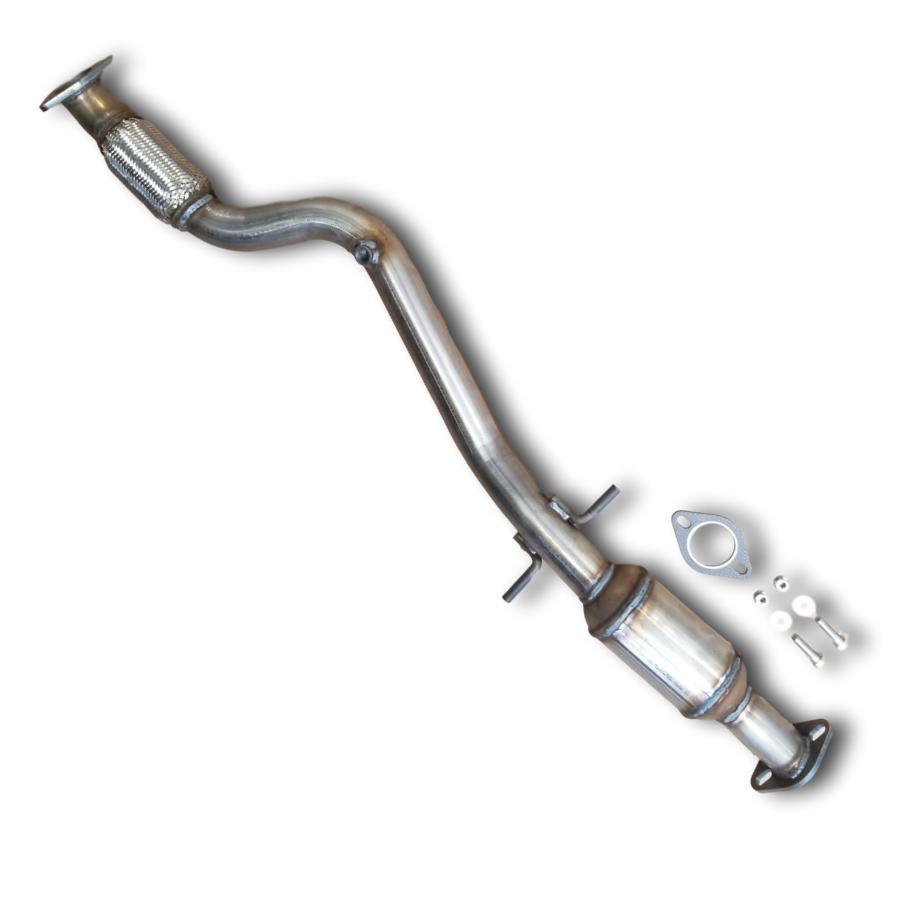The first signs that the catalytic converter in your Chevy Cruze may need to be replaced will be a check engine light and the associated P0420 code. On most vehicles, this is a fairly straightforward diagnosis that we’ve described here. But the Cruze is a relatively new car, and this error seems to be most common between 80k and 100k miles, conveniently right after the federal emissions component warranty expires. What could have caused this failure so early in the life of the car?
The turbocharger is a very well documented point of failure in any vehicle with a 1.4L turbocharged engine; Not only in Cruze, but also in Chevy Sonic, Trax SUV and Buick Encore which share the same engine. The most common reason for replacing a turbocharger due to general wear and tear is because the seal in the middle of the turbo has worn out, oil has leaked into the intake or exhaust. Oil leaking into the exhaust will definitely clog your catalytic converter and cause this emissions code.
However, turbo failure on the 1.4T is largely due to a design flaw where the bypass valve spring wears out prematurely. This problem can certainly cause premature wear of the center bearing of your turbo; An open vacuum line can also leave behind dirt and contaminants, none of which are healthy for a bearing that can spin at 200,000 rpm. But in our extensive experience with these engines, turbos are not replaced because of oil consumption or bearing wear. When the bypass valve is clogged, it is more difficult for the turbo to increase the boost pressure, which leads to a very noticeable loss of power; Essentially, the turbo stops doing its main job. So while turbo failure can lead to jack failure, and turbo failure is extremely common in these vehicles, the two phenomena do not seem to be related.
According to owners who have fixed this problem on their own, a more likely culprit appears to be that GM has extended the service interval for the spark plugs to slightly longer than the original plugs. General Motors recommends replacing 1.4T spark plugs every 100,000 miles. While 100k is pretty doable with modern high-tech spark plugs made from iridium or other rare earth minerals, factory-installed spark plugs are made from GM platinum. While this is certainly an improvement over traditional copper plugs (at least in terms of life and wear), these are considered “mid-tier” options on the aftermarket, and platinum plugs are difficult to find. With 100,000 mile rating.
What if it’s too late to avoid damage and now you definitely need to replace your converter? There are a few different options even for the same vehicle, which makes the process of choosing a replacement jack more difficult than with many other parts. You will need to check if your area requires a CARB legal replacement converter; More and more states are adopting California emissions standards, so even if you are not in CA, your local government may require a legal CA replacement. These cars have a total of two converters; An upstream is located downstream from the manifold or turbo on 1.8L cars, and there is a rear or downstream converter located on the exhaust pipe under the car. From there, you can also choose a direct-fit replacement that bolts on like an OEM, or a “universal fit” where you’ll need to cut the old converter off your exhaust and weld on the new one. Buying a universal converter may be cheaper, but installation is probably more expensive, and it’s not that easy to use either.

